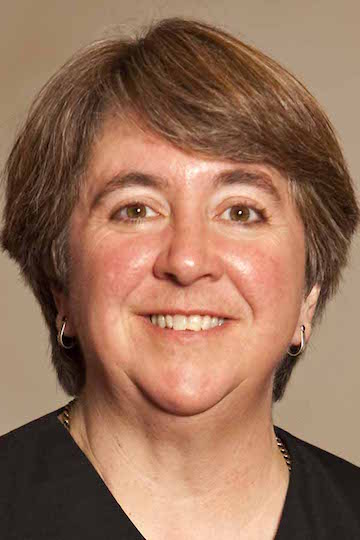In a case showing the pressing need to update New York’s Domestic Relations Law to reflect modern-day family realities and take full account of the state’s Marriage Equality Act, the Albany-based Third Department of the Appellate Division ruled on January 25 that a sperm donor to a lesbian married couple could not seek a paternity determination regarding the child conceived using his sperm. The ruling countermanded one by Chemung County Family Court Judge Mary Tarantelli that genetic testing be done to confirm the plaintiff’s biological fatherhood. There was no dispute between the parties that the child was conceived using his sperm.
Jessica and Nichole, the respondents in this case, were married before Jessica gave birth to their child in August 2014. Justice Robert C. Mulvey wrote that the child was conceived “through an informal artificial insemination process” in the women’s home using the petitioner’s sperm. The women knew the man, identified as Christopher, “for a short time through family,” the judge wrote. “The parties agree that petitioner, with his partner present, knowingly provided his sperm to assist respondents in having a child, and that the wife performed the insemination.”
Without legal advice but in a written agreement drafted by the man and signed with his partner present, Mulvey wrote, “petitioner volunteered to donate his sperm so that respondents could have a child together, expressly waived any claims to paternity with regard to any child conceived from his donated sperm, and further waived any right to custody or visitation, and respondents, in turn, waived any claim for child support from petitioner.”
Man cannot legally rebut presumption that the mother’s wife is the child’s parent
The court noted that Christopher denied the existence of the written agreement, but the court found that testimony by the women and by Christopher’s partner supported the Family Court’s determination that it did exist. Christopher’s partner testified that “she had destroyed the only copy of that agreement.” The court found that the agreement, in any event, was “not legally enforceable,” but it did help determine the parties’ “understanding, intent and expectations at the time” Christopher donated his sperm.
After the child’s birth, the mothers and Christopher “disagreed” on his access to the child, whom he did not see for a month or two after her birth.
Family Court Judge Tarantelli rejected the mothers’ motion to dismiss the proceeding and granted the Christopher’s request for genetic testing, but agreed to stay the testing order while the women appealed.
Justice Mulvey reviewed the basic family law principles under which the spouse of a woman who bears a child is presumed to be the child’s legal parent, the child being characterized as a “product of the marriage.” The law allows this presumption to be rebutted through a proceeding establishing that another man than the mother’s husband is the child’s biological father. Mulvey pointed out, however, that this provision doesn’t account for lesbian couples having children through donor insemination since the law regarding such procedures focuses on the legal parental status of a husband who gives written permission for his wife to receive a sperm donation from another man.
“Application of existing case law involving different-gender spouses,” Mulvey wrote, “is inherently problematic,” and he added, “If the presumption of legitimacy turns primarily upon biology, as some earlier cases indicate, rather than legal status, it may be automatically rebutted in cases involving same-gender married parents. This result would seem to conflict with this state’s ‘strong policy in favor of legitimacy,’ which has been described as ‘one of the strongest and most persuasive known to the law.’ Summarily extinguishing the presumption of legitimacy for children born to same-gender married parents would seem to violate the dictates of the Marriage Equality Act.”
The judge specifically noted that law’s requirement that married same-sex couples have the same “legal status, effect, right, benefit, privilege, protection or responsibility relating to marriage” as different-sex couples have.
Questions regarding the “legitimacy” Mulvey referred to, he said, “will need to be reconsidered.”
Though the Legislature “has not addressed this dilemma,” he wrote, “we believe that it must be true that a child born to a same-gender married couple is presumed to be their child and, further, that the presumption of parentage is not defeated solely with proof of the biological fact that, at present, a child cannot be the product of same-gender parents.”
Biology aside, Mulvey found, Christopher’s petition has not “established, by clear and convincing evidence, that the child is not entitled to the legal status as ‘the product of the marriage,’” and so cannot rebut the presumption she is the two women’s child.
Since there is no dispute that Christopher donated the sperm that led to the child’s conception, Mulvey applied the legal doctrine of “equitable estoppel” and found that “it is not in the child’s best interests to grant petitioner’s request for a paternity test.”
In past cases, the judge noted, equitable estoppel has been applied to preclude “a man from asserting his paternity when he acquiesced in the establishment of a strong parent-child bond between the child and another [person].” In other words, the court is not going to let Christopher interfere in the established relationship that Nichole has with the child her wife, Jessica, bore. The paramount goal, Mulvey wrote, is to “protect the status interests of a child in an already recognized and operative parent-child relationship.”
The judge rejected the argument that the informal way the parties proceeded, without complying with the state’s donor insemination requirements, affects the presumption of Nichole’s parentage.
The facts of the case, Mulvey found, supported the court determination. Christopher “was not involved in the child’s prenatal care or present at her birth, did not know her birth date, never attended doctor appointments, and did not see her for at least one or two months after her birth. He was employed, but never paid child support, and provided no financial support… By his own admission, he donated sperm as a ‘humanitarian’ gesture, to give respondents ‘the gift of life,’ and expected only ‘contact’ with the child as a ‘godparent’ by providing her mothers with ‘a break’ or ‘help.’”
The judge added that “no aspect of his testimony or conduct supports the conclusion that he donated sperm with the expectation that he would have a parental role of any kind in the child’s life, and he never had or attempted to assert such a role.”
Christopher only filed his petition, Mulvey noted, when the child was seven months old and “in an already recognized and operative parent-child relationship” with her birth mother, Jessica, and with her other mother, Nichole.
Since the original Family Court determination, the child has been in foster care, and there are neglect petitions pending against the mothers. That development caused an attorney appointed to represent the child to support Christopher’s petition for genetic testing. The attorneys who appeared before the Appellate Division, however, did not know the details of that situation.
Responding to news of that development, Mulvey wrote, “We find that the subsequent events, on which we take no position, do not alter our conclusion that respondents established at the [Family Court] hearing that petitioner should be equitably estopped from asserting paternity under the circumstances known to the Family Court at the time of the hearing.” Allowing new matters to be raised at this point “should not be permitted,” he added. “Doing so would continue to invite challenges to the then-established family unit into which the child was born, creating instability and uncertainty.”

































